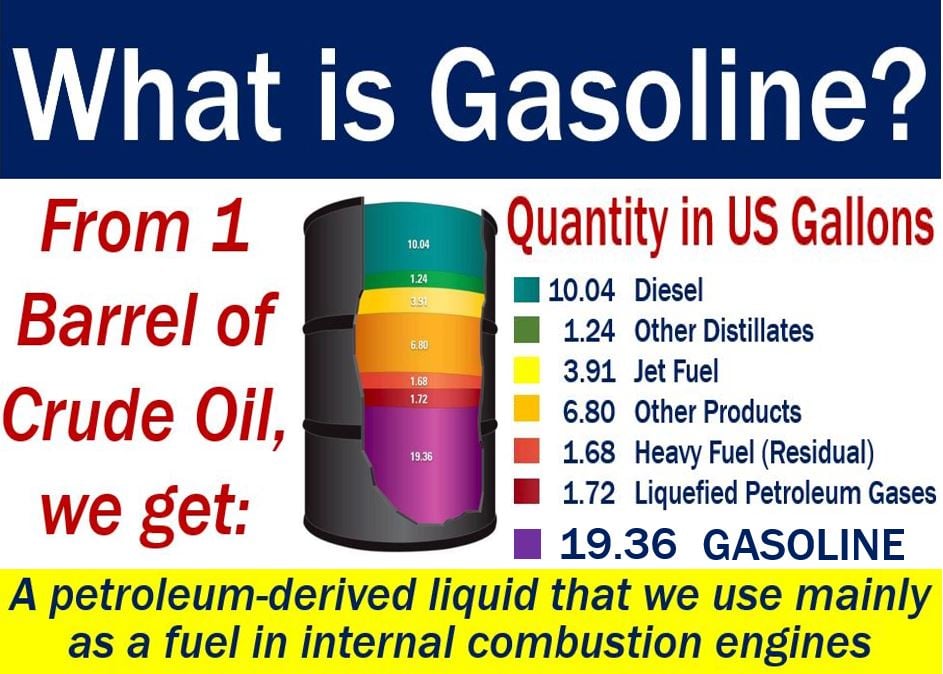Gasoline or gas is a transparent liquid that we use primarily as a fuel in internal combustion engines. In Great Britain and Ireland, people use the word ‘petrol‘ more often than gasoline. In fact, in the British Isles, the short form ‘gas’ only refers to natural gas or butane gas.
Gasoline is a derivative product of crude oil, i.e., petroleum.
It is a highly flammable liquid that evaporates as the internal combustion engine uses it.
Gasoline comprises mainly organic compounds through the fractional distillation of petroleum. Fractional distillation is the separation of a mixture into fractions, i.e., its component parts. Companies also enhance it with several different additives.
To get 72 liters (nineteen gallons) of gasoline, you need 159 liters (one 42-gallon barrel) of crude oil. Oil and gas companies process the crude oil in a refinery.

Etymology of gasoline and petrol
Etymology is the study of the history of words and how their meanings evolved.
According to the Online Etymology Dictionary, the word with its modern meaning emerged in 1864. It was a variant of the word gasolene.
The shortened form ‘gas’ became common in the United States by 1897. According to records, the term ‘gas station’ as a fuel filling station dates back to 1924.
British wholesaler Carless, Capel & Leonard first used the term ‘petrol’ with its modern British meaning. The company marketed it as a solvent.
When the liquid later found a new use as a fuel for internal combustion engines, Carless tried to register the trademark ‘petrol.’ However, by this time the word had become too common to trademark.
A trademark is a sign or symbol that companies use to distinguish their goods from those of other businesses. When you register a trademark, nobody else can use it without your permission.
Gasoline floats on water. Therefore, if it catches fire, we cannot extinguish it using water, unless we apply a fine mist.
Water weighs 1 kilogram per liter. Gasoline, however, weighs just 0.755 kilograms per liter.
During the 1970s, the price of oil, and therefore gasoline, increased dramatically. Countries without oil reserves subsequently began blending the fuel with ethanol. We get ethanol by fermenting corn and other crops. Gasohol, for example, consists of nine parts gas to one part ethanol.
